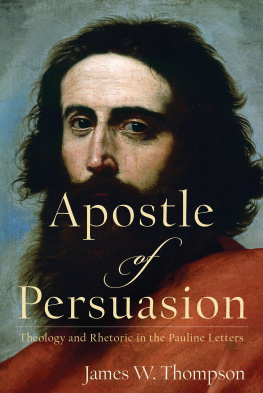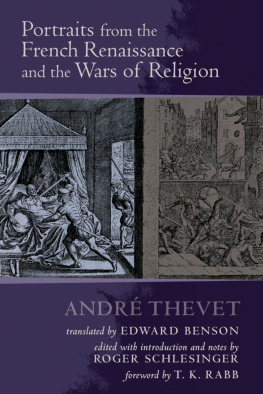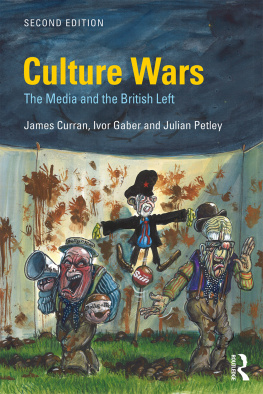THE LAST DAY OF JUNE, 1559, was a gala day in Paris. The marriages of Philip II of Spain with Elizabeth of France, daughter of King Henry II and Catherine de Medici, and that of the French Kings sister, Marguerite with Emanuel Philibert, duke of Savoy, were to be celebrated. But the torches of joy became funeral tapers before nightfall, for Henry II was mortally wounded in the tournament given in honor of the occasion. It was the rule that challengers, in this case the King, should run three courses and their opponents one. The third contestant of the King had been Gabriel, sieur de Lorges, better known as the count of Montgomery, captain of the Scotch Guard, a young man, grand et roidde, whom Henry rechallenged because his pride was hurt that he had not better kept his seat in the saddle in the first running. Montgomery tried to refuse, but the King silenced his objections with a command and reluctantly Montgomery resumed his place. But this time the Scotch guardsman failed to cast away the trunk of the splintered lance as he should have done at the moment of the shock, and the fatal accident followed. The jagged point crashed through the Kings visor into the right eye. For a minute Henry reeled in his saddle, but by throwing his arms around the neck of his horse, managed to keep his seat. The Kings armor was stripped from him at once and a splint taken out of good bigness. He moved neither hand nor foot, and lay as if benumbed or paralyzed, and so was carried to his chamber in the Tournelles, entrance being denied to all save physicians, apothecaries, and those valets-de-chambre who were on duty. None were permitted for a great distance to come near until late in the day, when the duke of Alva, who was to be proxy for his sovereign at the marriage, the duke of Savoy, the prince of Orange, the cardinal of Lorraine, and the constable were admitted.
After the first moment of consternation was past, it was thought that the King would recover, though losing the sight of his eye, since on the fourth day Henry recovered his senses and his fever was abated. Meanwhile five or six of the ablest physicians in France had been diligently experimenting upon the heads of four criminals who were decapitated for the purpose in the Conciergerie and the prisons of the Chtelet. On the eighth day Vesalius, Philip IIs physician, who had long been with the emperor Charles V, and who enjoyed a European reputation, arrived and took special charge of the royal patient. In the interval of consciousness Henry commanded that the interrupted marriages be solemnized. Before they were celebrated the King had lost the use of speech and lapsed into unconsciousness, and on the morrow of the marriages he died (July 10, 1559). On August 13 the corpse was interred at St. Denis. When the ceremony was ended the king of arms stood up, and after twice pronouncing the words Le roi est mort, he turned around toward the assembly, and the third time cried out: Vive le roi, trs-chretien Franois le deuzime de ce nom, par la grace de Dieu, roi de France. Thereupon the trumpets sounded and the interment was ended. A month later, on September 18, Francis II was crowned at Rheims. Already Montgomery had been deprived of the captaincy of the Scotch Guard and his post given to a mere Frenchman, much to the indignation of the members of the Guard.
The reign of Henry II had not been a popular one. He had neither the mind nor the application necessary in public affairs. On the very day of the accident the English ambassador wrote to Cecil: It is a marvel to see how the noblemen, gentlemen, and ladies do lament this misfortune, and contrary-wise, how the townsmen and people do rejoice. The wars of Henry II in Italy and in the Low Countries had drained France of blood and treasure, so that the purses of the people were depleted by an infinity of exactions and confiscations; offices and benefices had been bartered, even those of justice, and to make the feeling of the people worse, Henry II was prodigal to his favorites. Finally the treaty of Cateau-Cambrsis (1559) was regarded as not less disadvantageous than dishonorable.
Meanwhile much politics had been in progress. The new king was not yet sixteen years of age. He was of frail health and insignificant intellect, being quite unlike his wife, the beautiful and brilliant Mary Stuart, who was a niece of the Guises, Francis, duke of Guise, and his brother Charles, cardinal of Lorraine, who had been in no small favor under Henry II. Even in the kings lifetime the ambition of the Guises had been a thing of wonderment and his unexpected death opened before them the prospect of new and prolonged power. Henry II had scarcely closed his eyes when the duke of Guise and the cardinal of Lorraine took possession of the person of Francis II and conducted him to the Louvre, in company with the queen-mother, ignoring the princes of the blood, the marshals, the admiral of France, and many Knights of the Order, or grand seigneurs who were not of their retinue. There they deliberated without permitting anyone to approach, still less to speak to the King except in the presence of one of them. Francis II gave out that his uncles were to manage his affairs. In order to give color to this assumption of authority, as if their intention was to restore everything to good estate again, the Guises recalled the chancellor Olivier, who had been driven from office by Diane de Poitiers, Henry IIs mistress.
Even before these events the Guises had shown their hand, for on the day of Henry IIs decease the constable, the cardinal Chtillon and his brother, the admiral Coligny, had been appointed to attend upon the royal corse at the Tournelles, by which maneuver they were excluded from all active work and the way was cleared for the unhampered rule of the Kings uncles. Rumor prevailed that DAndelot, the third of the famous Chtillon brothers, was to be dismissed from the command of the footmen and the place be given to the count de Rochefoucauld. Before the end of the month the duke of Guise was given charge of the war office and the cardinal of Lorraine that of finance and matters of state. At the same time, on various pretexts, the princes of the blood were sent away, the prince of Cond to Flanders, ostensibly to confer with Philip II regarding the peace of Cateau-Cambrsis, the prince of La Roche-sur-Yon and the cardinal Bourbon to conduct Elizabeth of France into Spain, so that by November there remained no more princes with the King save those of Guise, who had influential agents in the two marshals, St. Andr and Brissac.
Much depended upon the attitude of Antoine of Bourbon, sieur de Vendme and king of Navarre, who was first prince of the blood, and the person to whom the direction of affairs would naturally fall. At the time of Henry IIs death he was in Barn, whither La Mare, the Kings valet-de-chambre, was sent to notify him, the Guises having shrewdly arranged to have the ground cleared of the opposition of the Bourbons and Chtillons when he should arrive.









